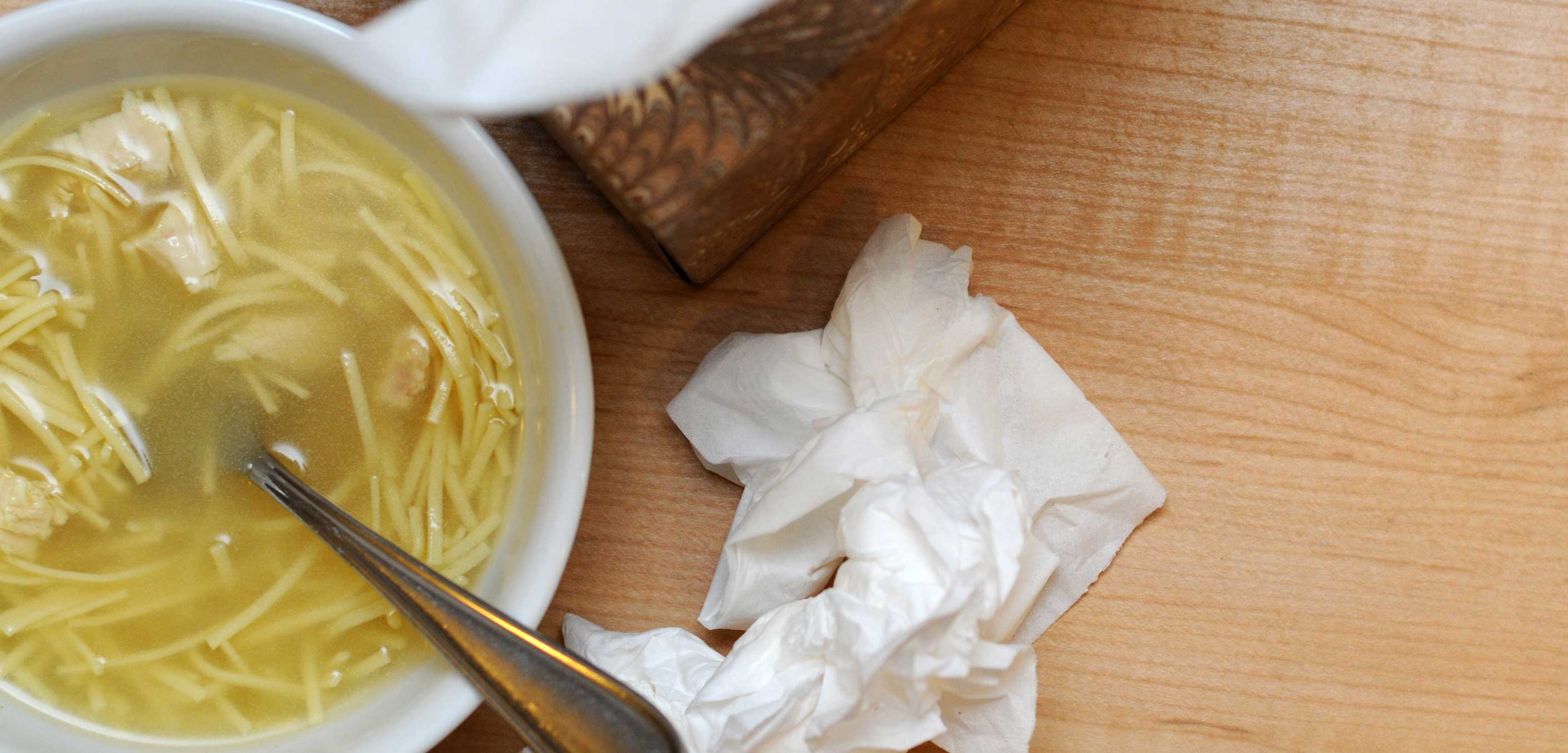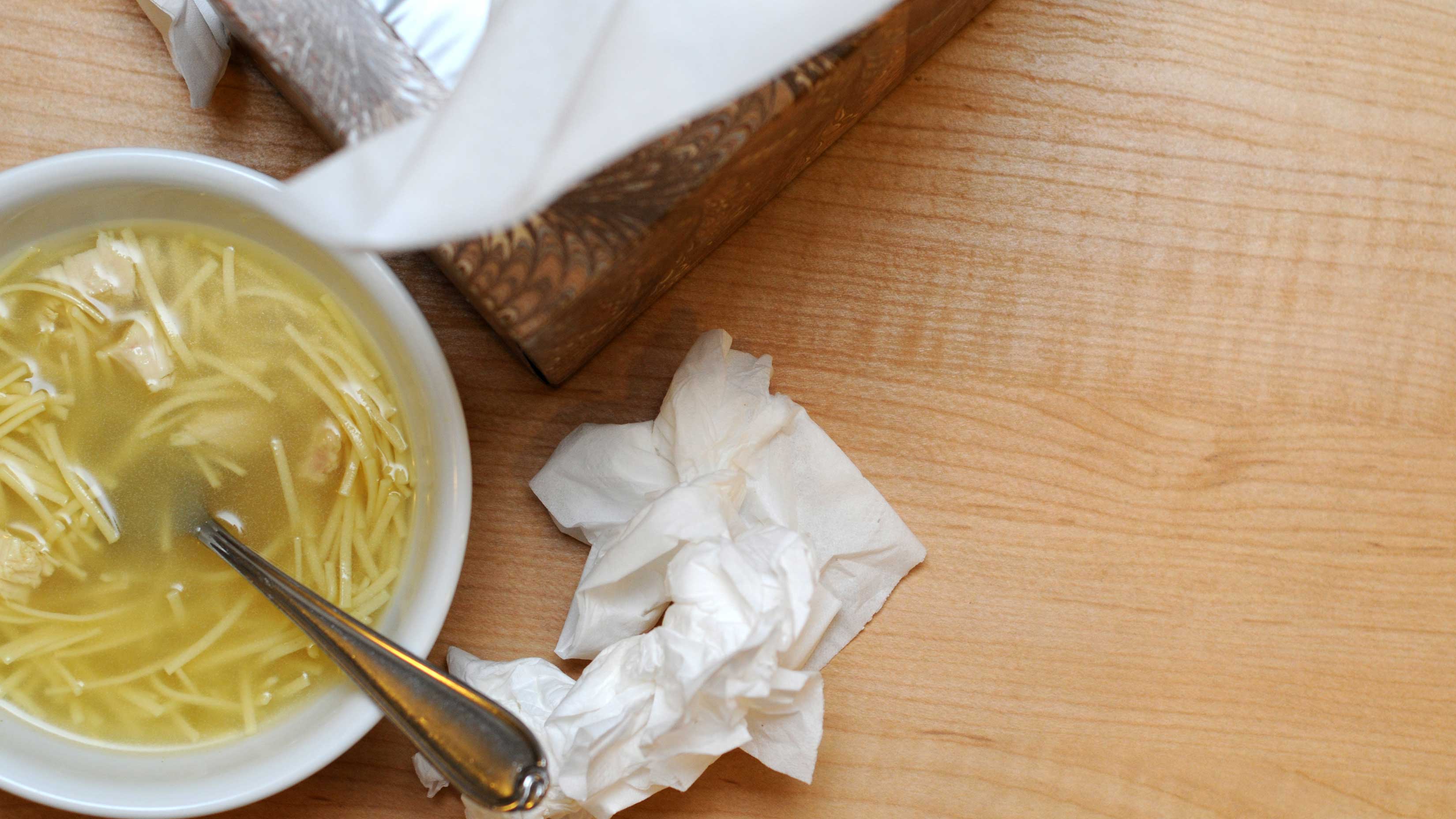The 5 biggest myths about immune system boosters


Think you can eat your way to good health, easy peasy? Think again. Much of what you hear and read about foods that boost your immunity isn’t grounded in science. To get a real sense of which homespun remedies actually work, start by debunking the biggest myths:
MYTH 1: Fruit and veggie juices can help you get better when you’re sick.
The verdict: If the only thing you can tolerate is a tall glass of OJ, then have it—but if you can chew and swallow an actual orange, do that!
Compared to juice, whole fruit is higher in fiber, antioxidants, phytonutrients, and prebiotics—all qualities that support your health and well-being. And as for hydration, water and seltzer will do the trick while veggie soup, stews, and broths can provide amino acids and antioxidants, while the heat can soothe a sore throat and loosen up congestion.
MYTH 2: Dairy promotes mucus production so you should avoid it when you’re sick.
The verdict: No need!
Research has found that this is more myth than fact—but if you personally feel like creamy foods (pudding, yogurt, ice cream, milk) are less palatable when you’re sick, there’s no need to push it! There are plenty of high-protein alternatives to regular cow’s milk products.
MYTH 3: Skip “dehydrating” beverages like caffeinated coffee and tea when you’re under the weather.
The verdict: Not necessary!
Coffee is a rich source of antioxidants that’s hydrating regardless of its caffeine content. (And as it happens, the caffeine can even help you feel better when you have a head cold by boosting alertness.) For decreasing long-term chronic disease and boosting health: People who drink three to four cups per day are at decreased risk of heart disease, cancers, Alzheimer’s disease, and diabetes than those who abstain.
MYTH 4: Getting sick? Take vitamin C!
The verdict: Too late.
While people who take a regular vitamin C supplement (about 200 mg/day) may suffer less severe and shorter colds, popping pills is unlikely to reduce the average adult’s risk of getting sick in the first place. What’s more, it won’t help you feel better faster if you start supplementing after the onset of symptoms.
Also worth noting: Because vitamin C is water soluble, amping up your daily dose during cold and flu season is unnecessary: You’ll just excrete the excess through urine. The same goes for multivitamins.
One exception is zinc supplements, which can reduce cold duration when taken at the onset of a symptoms. Even more important for your daily immunity: Try adding more food sources of zinc to your diet: Nuts, seeds, beans, and seafood are your best bets.
MYTH 5: Adding "antibacterial foods" like coconut oil and honey can help you stay healthy.
The verdict: Not so much.
About half of the fatty acids found in coconut oil come from a type of fatty acid called lauric acid, which has been linked to antimicrobial, antifungal effects that may reduce risk of certain acute and chronic illnesses and diseases (i.e.., a yeast infection, not type 2 diabetes). But that's no reason to guzzle enough coconut oil to bathe your internal organs in the stuff!
Research is still ongoing on the topic, but since you'd have to consume high amounts of the oil to truly reap the benefits of it. And since dietary fat from all plant-based oils can rack up quickly (thus contributing to weight gain over time), it may not be worth the risk: Coconut oil is higher in saturated fat, which is associated with an increased risk of heart disease, than butter.
And as for honey? Research is hyper-limited on how much honey can truly do for your seasonal allergies and microbial infections; but ultimately, if you're adding honey to your tea or morning oatmeal, there's no reason to stop. Just keep in mind that honey is still a concentrated form of sugar (and therefore, can be easy to overdo).
The bottom line:
If you know you're susceptible or in a place where germ exposure is high, fill up on fruits, veggies, pulses, nuts, seeds, and whole grains since plants in their most wholesome form all serve up prebiotics, a type of fiber that helps your body’s own probiotics to survive and thrive to maintain a healthy immune system and offset your risk of getting sick in the first place.
Also important: Stay hydrated! Your body may have higher fluid needs when you’ve got a fever—and the same goes for protein—one reason why chicken soup can hit the spot when you’re under the weather.
Otherwise, practicing self-care basics like getting a flu shot, washing your hands often and thoroughly for at least 20 seconds, getting sufficient sleep, and clocking regular physical activity —"some" is better than none!—can help you fend off illness.
--
Jackie London is a registered dietitian (RD), certified dietitian nutritionist (CDN) and holds a bachelor of arts degree from Northwestern University and master of science degree in clinical nutrition from New York University. London is also the author of Dressing on the Side (and Other Diet Myths Debunked): 11 Science-Based Ways to Eat More, Stress Less, and Feel Great About Your Body, and previously served as Good Housekeeping’s nutrition director, where she oversaw all of the brand's nutrition-related content across platforms and evaluating products for the Good Housekeeping Seal and GH Nutritionist Approved Emblem.
--
This article was reviewed for accuracy in June 2021 by Tiffany Bullard, PhD, manager for clinical research at WeightWatchers®. The WW Science Team is a dedicated group of experts who ensure all our solutions are rooted in the best possible research.
Related articles:
